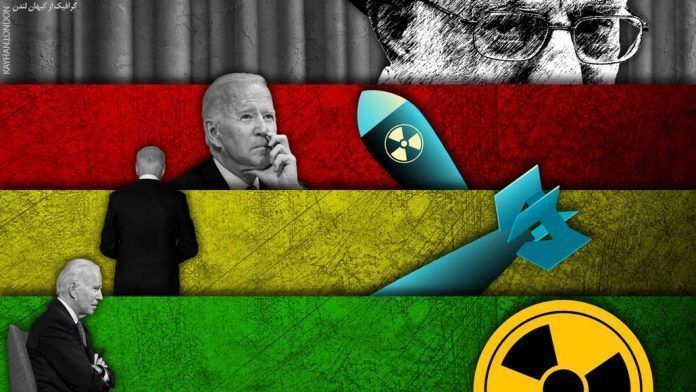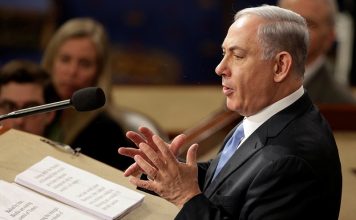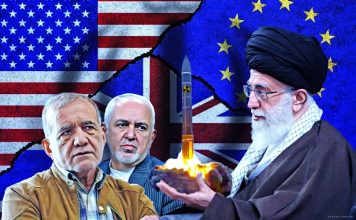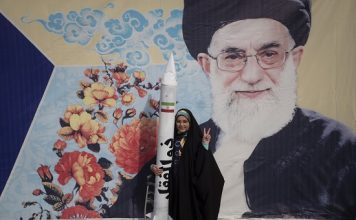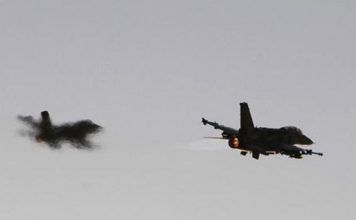By Ahmad Rafat
The U.S. has launched a series of retaliatory strikes on the military bases of Iran-backed groups in the Middle East. The U.S. military has used its supersonic strategic heavy B1 bombers to target militia groups linked to the Islamic Revolutionary Guards Corps’ Qods Force (IRGC-QF) in Syria and Iraq.
This unprecedented measure could signal a heightened resolve to engage with the Islamic Republic’s proxy groups in the region. However, the limited response could also indicate that the U.S. does not wish to see the war sparked by Hamas’s attack on Israel on Oct. 7 to spread through the region. U.S. officials have repeatedly said that they do not wish to escalate the war.
There have been 170 attacks on American military bases in Iraq and Syria since Oct. 7, the latest on Tower-22 in Jordan, which killed three members of the U.S. military.
The Pentagon provided the White House with a series of options even before the recent attacks on American forces.
Striking Iran-backed militias was on top of that list of options. Another option was a limited cyberattack on the Islamic Republic infrastructure, which has been ongoing yet yielding no visible results.
A direct military confrontation with the Islamic Republic is not on the table for the U.S. right now for several reasons.
Iran also does not seek a head-on clash with the U.S. and the West. It prefers to fight the U.S. through its proxies, which provide Tehran with plausible deniability. All Iran-backed groups, including Hamas in the Gaza Strip and Kataib Hezbollah in Iraq, claim to be independent entities, planning and executing their military operations without the knowledge of Tehran and the IRGC.
While Israel and some Republican politicians in the U.S. advocate “cutting the head of the octopus in Tehran,” i.e. engaging in a direct confrontation with Iran, the U.S. government plans instead to deliver a decisive blow to Iran-backed forces – and compel the Islamic Republic to defuse regional tensions.
Tehran seems to have received the message, because it has responded neither directly nor indirectly to recent massive strikes on its proxy forces.
Tehran has so far limited its response to the bombings of its proxy forces in Iraq, Syria, and even Yemen, and to defiant rhetoric and verbal threats. It is doubtful that we will see any further actions from Iran-backed groups except for the Houthi rebels, who will continue their attacks on commercial shipping in the Red Sea.
According to an advisor to the United States Central Command (CENTCOM), the U.S. hopes that, by avoiding strikes on targets inside Iran, it will defuse and deescalate the threats.
There are 3,500 military personnel stationed on several bases in Iraq and Syria. The U.S. embassy in Baghdad is one of the largest foreign missions in the Middle East. The safety and security of all U.S. embassy workers is the White House’s responsibility.
The U.S. must also consider several issues before striking targets inside Iran. It needs permission from Iran’s neighbors to fly its bombers and jet fighters through their airspace. Saudi Arabia, the United Arab Emirates (UAE), Qatar, Turkey, Kuwait, Oman, and Iraq do not want to risk war with Iran by allowing the U.S. to use their airspace, because that could pose a real security threat to their national security and the stability of those in power.
While air and naval attacks could weaken the Iranian regime, they would not be entirely successful. To achieve victory in a war with Iran, the U.S. would have to deploy ground troops: according to some reports, between 250,000 and 320,000 of them.
The U.S. lacks the financial, logistic, and political capability to start a war with Iran, especially considering that 2024 is an election year. The U.S.’s European allies have no more desire to be dragged into a war with Iran. Were the White House to decide to attack Iran, it would find no ally to join forces with it.
Contrary to common belief, the Islamic Republic is likely to team up with Russia and China to influence the U.S. elections in favor of the Republicans and lead Donald Trump back to power.
Mr. Trump, who will most likely face President Joe Biden in the forthcoming November elections, has repeatedly said that if elected president, he would reduce the number of U.S. troops in the Middle East – a move that would only strengthen the influence of Russia, China, and Iran in the region.

